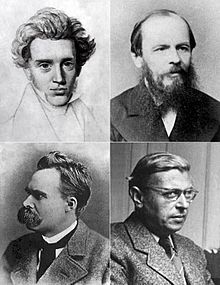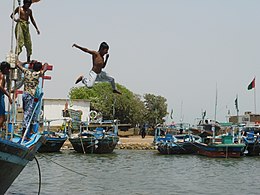
Philosophy of life
Lebensphilosophie (German: [ˈleːbm̩s.filozoˌfiː]; meaning 'philosophy of life') was a dominant philosophical movement of German-speaking countries in the late 19th and early 20th centuries, which had developed out of German Romanticism. Lebensphilosophie emphasised the meaning, value and purpose of life as the foremost focus of philosophy.Its central theme was that an understanding of life can only be apprehended by life itself, and from within itself.
5 episodes
Episodes in this category also belong to the following categories:
Existentialism
Melvyn Bragg discusses existentialism, a twentieth century philosophy of everyday life concerned with the individual, and his or her place within the world.
28 June 2001
Featuring: A. C. Grayling, Christina Howells, Simon Critchley
Free Will(500th programme)
Melvyn Bragg and his guests discuss the problem of free will - the extent to which we are able to choose our actions.
10 March 2011
Featuring: Simon Blackburn, Helen Beebee, Galen Strawson
Guilt
Melvyn Bragg discusses the moral conscience and take a long hard look at the idea of guilt.
1 November 2007
Featuring: Stephen Mulhall, Miranda Fricker, Oliver Davies
Nihilism
Melvyn Bragg explores the history of Nihilism, a philosophy associated with Nietzsche that claims truth and morality are illusory. Has anything positive come out of the philosophy of ‘nothing’?
16 November 2000
Featuring: Rob Hopkins, Raymond Tallis, Catherine Belsey
Progress
Melvyn Bragg examines whether while mankind has grown in years and knowledge, it has also progressed in terms of happiness and a truer understanding of the human condition.
18 November 1999
Featuring: Anthony O'Hear, Adam Phillips
PhilosophyPhilosophical schools and traditionsConcepts in metaphysicsConcepts in epistemologySocial theoriesAnthropologyProgressEpistemology of scienceHuman evolutionTheories of historyOntologyVirtuePhilosophy of historyPhilosophy of lifePolitical scienceConcepts in aestheticsPolitical conceptsEthical principlesSocial concepts




